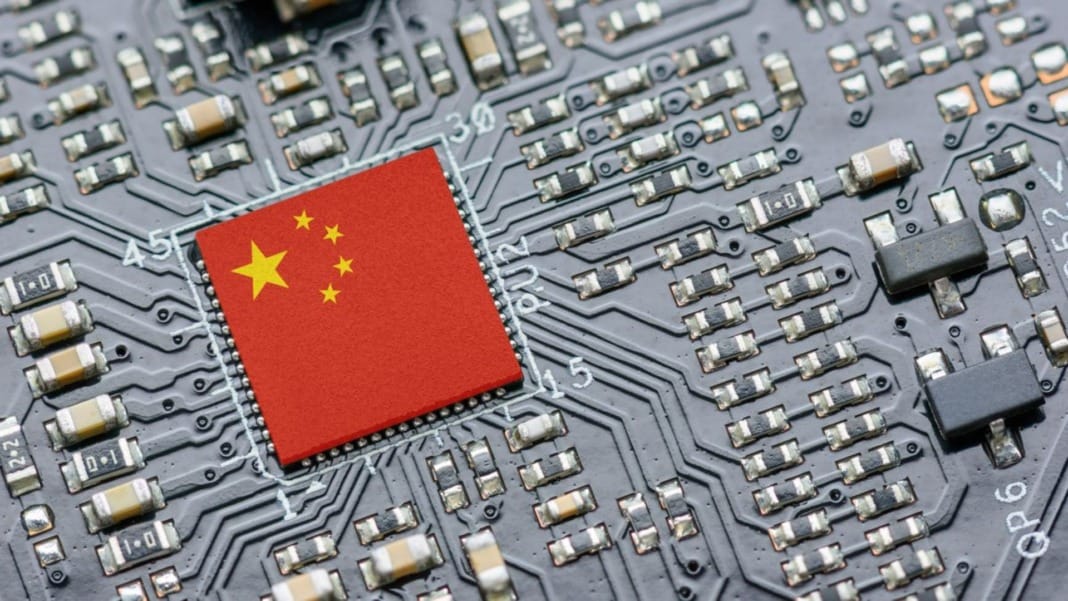China’s semiconductor industry faced slowing growth in October as concerns about potential new US sanctions intensified. The production of integrated circuits (ICs), a key measure of semiconductor output, rose by 11.8% year-on-year to 35.9 billion units in October. This was a slight decline from September’s 36.7 billion units, according to the National Bureau of Statistics (NBS) on Friday.
China’s total IC output reached 353 billion units from January to October, marking a robust 24.8% year-on-year increase. However, experts suggest this growth is uneven, with legacy chip production thriving while advanced semiconductor capabilities remain stifled due to technological barriers and existing US sanctions.
Legacy chipmaking and EVs drive growth
Despite its struggles with cutting-edge chip manufacturing, China has maintained momentum in producing older, widely used legacy chips. In 2024, semiconductors were China’s second-fastest-growing industry, outpaced only by the electric vehicle (EV) sector.
China’s EV output surged by an impressive 36.3% from January to October, producing 9.9 million vehicles. In October alone, the country manufactured 1.43 million EVs, a remarkable 48.6% increase compared to last year. On Thursday, the China Association of Automobile Manufacturers (CAAM) reported that annual EV production exceeded 10 million units for the first time.
Robotics has also contributed to industrial growth. According to the NBS, the output of industrial robots grew by 13.3% in the first 10 months of 2024 and expanded by 33.4% year-on-year in October alone.
These industries and semiconductors helped offset declines in traditional sectors like cement and crude steel. Overall, China’s industrial output grew 5.3% year-on-year in October.
Legacy chips lead exports despite hurdles
China’s semiconductor exports have seen significant growth. From January to October, the country exported US$130.9 billion worth of ICs, a 19.6% increase from the same period in 2023. Semiconductors emerged as one of China’s “key export products,” surpassing smartphones and trailing only slightly behind clothing exports, totalling US$131.2 billion during the same period.
Multinational corporations continue to rely on China for legacy chip production. Semiconductor Manufacturing International Corporation (SMIC), China’s leading chipmaker, reported a capacity utilisation rate of 90.4% in the last quarter. SMIC recently added production capacity for 12-inch wafers, which remain in high demand.
Still, China’s ambitions to compete in advanced semiconductor manufacturing face significant challenges. The country’s ability to produce state-of-the-art chips used in smartphones and artificial intelligence is hindered by restrictions on purchasing advanced lithography equipment. Dutch company ASML, which dominates the extreme ultraviolet lithography systems market, is barred from selling its most advanced tools to China under US sanctions.
Global impact of restrictions
The effects of these restrictions extend beyond China. Taiwan Semiconductor Manufacturing Company (TSMC), the world’s leading chipmaker, has taken steps to limit its services to Chinese companies. Recently, TSMC tightened its customer screening processes after a chip it made was used in a Huawei device. The company has suspended 7-nanometre foundry services for Chinese AI chip developers, with reports suggesting that Samsung Electronics might follow suit.
US analysts speculate that these actions could soon be formalised, potentially banning global firms from producing advanced Chinese chip designs altogether.
Despite these challenges, China continues to rely heavily on imported chips. In the first 10 months of 2024, the country imported US$315 billion worth of ICs, an 11.3% increase compared to last year. This far surpasses China’s spending on crude oil and iron ore during the same period, underscoring the nation’s dependence on foreign semiconductor technology.





